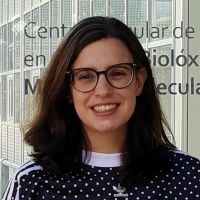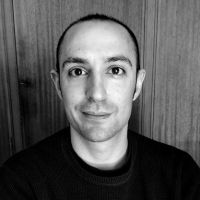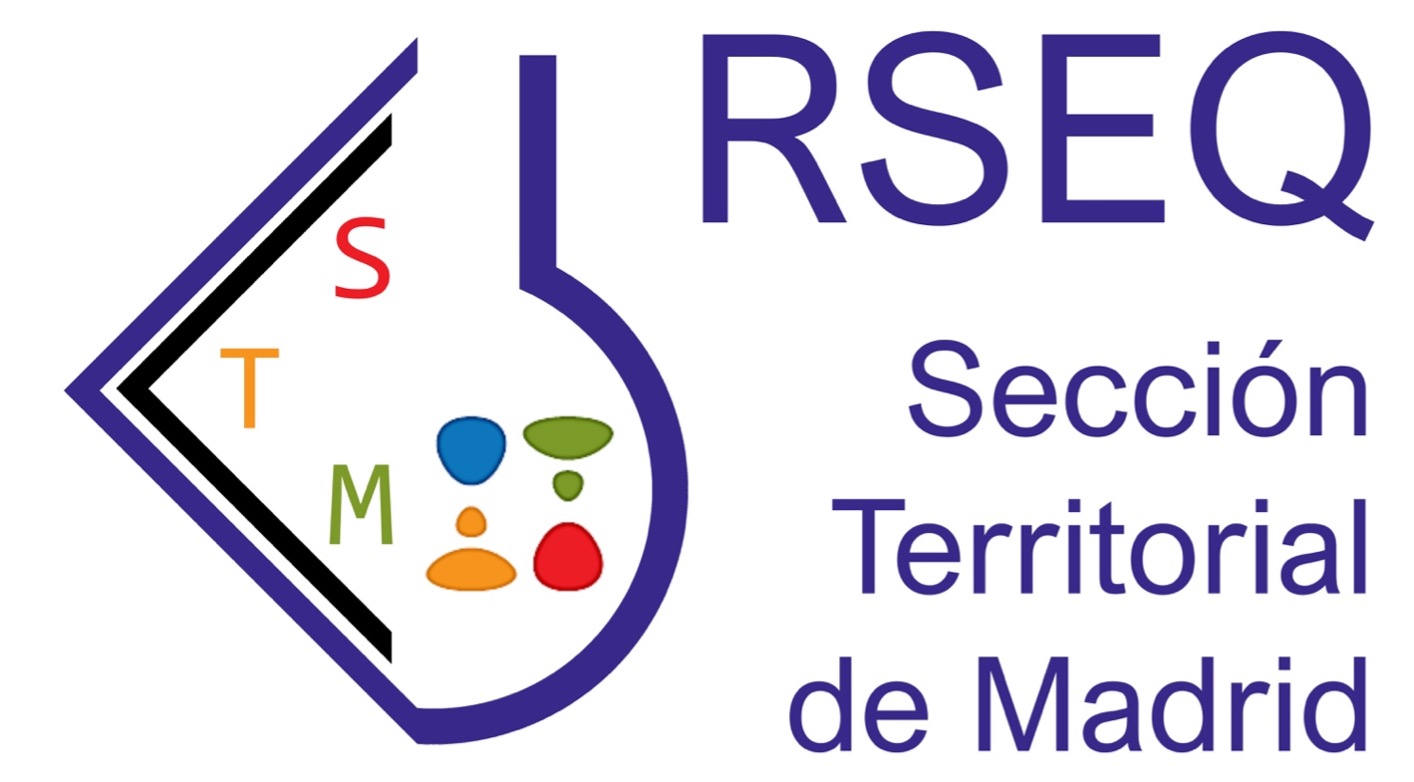11º Taller de Jóvenes Investigadores en Nanociencia
-

**News update: The Early Stage Researchers Workshop in Nanoscience goes international
The 11th edition of the Early Stage Researchers Workshop in Nanoscience will be held online on 1st December 2021 (via Zoom). The event is open to early stage researchers (PhD students and postdocs) who are invited to present their work as oral or poster communications.
Invited speakers:
Dr. Beatriz Pelaz García (CiQUS@USC)

Title: Remotely controlled colloidal nanosystems
Abstract:
Our research is focused on the development of multifunctional nanomaterials for applications in biology and medicine. We design, synthesize and customize nano- and micro-materials with applications in therapy, diagnostics, and imaging.
The interaction of light or alternating magnetic fields with inorganic NPs is orders of magnitude stronger than with organic molecules, in particular, due to their larger absorption cross-sections. Therefore inorganic NPs (or hybrid composites) offer a convenient platform to produce remotely controlled colloidal nanosystems. These interactions can be applied to develop nanoheaters, nanoreactors, or to induce a controlled drug release that will offer novel and personalized tools for therapy and imaging.
Biography:
Dr. Beatriz Pelaz is the director of the BioNanoTools Lab (https://bntsite.wordpress.com/), ERC grantee (Starting grant 2020), and Principal Researcher at the CiQUS. She graduated in Chemistry from University of Valladolid (2005) and Biochemistry from University of Zaragoza (UZ, 2011). She obtained a Master degree in experimental organometallic chemistry from the University of Valladolid (2006), to later carry out PhD studies at de la Fuente’s lab at the Institute of Nanoscience of Aragon (UZ) (2007-2012). She was a postdoctoral researcher (2012-2013) and a Humboldt Fellow (2014-2015) at Parak’s lab (Philipps-University of Marburg). In 2016, she moved to the CiQUS@USC with a JIN/RETOS-project. She was awarded with a Ramon y Cajal contract (ranked 3rd in the Chemistry panel, 2017 call).
Dr. Pablo Merino (Instituto de Ciencia de Materiales de Madrid ICMM-CSIC, IFF-CSIC)

Title: Real-space visualization of excitonic states in single molecules
Abstract:
The ability to control the emission from single-molecule quantum emitters is an important step towards their implementation in optoelectronic technology. [1] Even though excitonic states in single molecules can be detected by far-field spectroscopies, access to the individual modes in real space will bring the much needed insight into the photophysics of these fascinating quantum phenomena. Here I will show combined tip-enhanced spectromicroscopy with scanning tunneling and atomic force microscopies to inspect exciton states of molecular emitters engineered on surfaces. I will introduce electroluminescence from phthalocyanine-derived metal complexes on thin insulating layers. [2] Copper phthalocyanine (CuPc) emission can be reproducibly switched by atomic scale manipulations permitting precise positioning of the molecule on the NaCl ionic crystal lattice. I will show the modulation of electronic and optical bandgaps, and the exciton binding energy in CuPc by tens of meV and explain this effect by spatially-dependent Coulomb interaction occurring at the molecule-insulator interface. [3] Zinc phthalocyanine (ZnPc) shows emission from neutral and charged excitons (trions). I will present the intertwined exciton-trion dynamics combining radio frequency modulated scanning tunnelling luminescence with time-resolved single photon detection. [4] At last, PTCDA forms coupled molecular assemblies with entangled excitonic states. I will present hyperspectral mapping of the eigenstates and the comparison with calculated many-body optical transitions. [5]
These results reveal the possibility of tailoring excitonic properties of organic dye adsorbates for advanced functionalities and establish the methodology to address them individually at the nanoscale.
References
[1] K. Kuhnke et al., Chemical Reviews, 117 5174 (2017).
[2] J. Doležal et al., Nano Letters, 19, 8606 (2019).
[3] J. Doležal et al., ACS Nano, 14, 8931 (2020).
[4] J. Doležal et al. ACS Nano 15, 7694 (2021)
[5] J. Doležal et al. arXiv: 2110.00310v1 (2021)
Biography:
I am currently a Ramon y Cajal Fellow at the Institute for Material Science of Madrid (ICMM-CSIC), where I conduct my research on structural, electronic and optical characterization of low-dimensional carbon-materials. Previously I have been researcher of the ERC Synergy project Nanocosmos at the ICMM-CSIC and Humboldt Research Fellow in the Max Planck Institute for Solid State Research. I performed my PhD in the Center for Astrobiology (Spain) associated to NASA Astrobiology Institute. My investigations lie at the horizon where the fields of surface science, astrophysics and nanophotonics meet, yet I am further interested in any problem where carbon physics and chemistry dominate.
Important dates: abstract submission deadline is on the 8th of November. Deadline extended till November 15th.
Digital poster submission deadline: 28th November 2021. See the tab "Submit your abstract" for details.
Registration open till 29th November 2021. Register now to receive the link to the online meeting. See the tab "Registration".
Prizes: The Scientific Committee of the 11th Early Stage Researchers Workshop in Nanoscience will award with a prize the best contributions to the Workshop: Best Oral Communication, Best Poster Communication and Best Twitter Poster Communication. The prizes will be announced during the closing remarks of the Workshop.
Sponsored by the Madrid Territorial Division of the Spanish Royal Society of Chemistry
-
The 11th edition of the Early Stage Researchers Workshop in Nanoscience will be held online on 1st December 2021 (via Zoom). The event is open to early stage researchers (PhD students and postdocs) who are invited to present their work as oral or poster communications.
The poster session of the 11th Early Stage Researchers Workshop in Nanoscience will be celebrated in parallel to the oral communications. All poster communications will be displayed under the tab "Poster session", enabled from Dec. 1st 9:30. The posters will be displayed using the software 'Padlet' that allows for commenting under each poster (questions and answers about the poster content). A prize will be given to the Best Oral Communication, Best Poster Communication and Best Twitter Poster Communication during the Closing Remarks of the workshop (please, see the Scientific Programme).
Everyone is welcome to connect to the event and whilst there is no cost, registration is required. Please, follow the steps on the "Registration" tab.
Throughout this meeting we will see the different research lines of Nanoscience currently being developed by a growing number of groups and discuss their latest results. Due to the variety of disciplines that Nanoscience embraces, we would like to remind that the audience will be diverse including physicists, chemists or biologists and therefore we ask the presenters to adjust their contributions to this audience.
-
Scientific Committee
Dr. Juan Cabanillas
Dr. Manuela Garnica
Dr. José Sánchez CostaDr. Dooshaye MoonshiramDr. Ana EspinosaDr. Begoña SotDr. Valle PalomoDr. Borja IbarraDr. Mariela MenghiniOrganizing Committee
Dr. Ana M. Pizarro
Dr. Gorka Salas
Dr. David ÉcijaProf. Emilio M. Pérez
Dr. M. Jesús Villa
Dr. Elena Alonso -
The workshop will be held online via Zoom.
The link to the virtual conference room will be sent by e-mail upon registration. Please, register using the link under the "Registration" tab.
Contact
Esta dirección de correo electrónico está siendo protegida contra los robots de spam. Necesita tener JavaScript habilitado para poder verlo.
 @imdea_nano
@imdea_nano
 @imdeananociencia
@imdeananociencia
 @imdeananociencia
@imdeananocienciaThe Twitter Scientific Session will happen online, please use #ESRW to discover the contributions.
-
Download the book of abstracts.
**News update: The Early Stage Researchers Workshop in Nanoscience goes international





